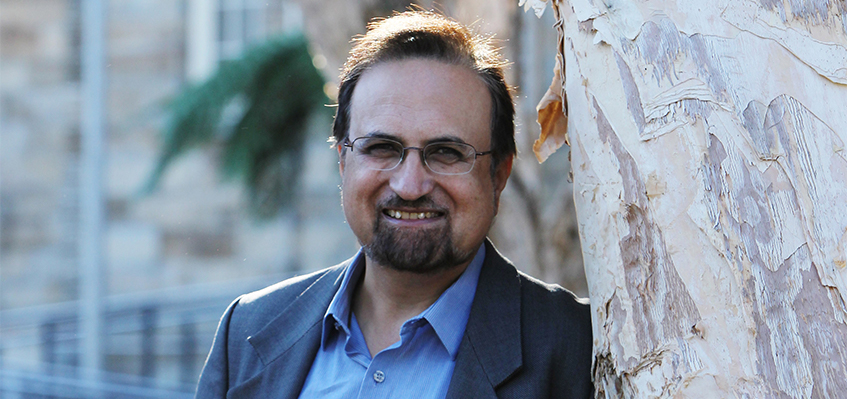22 Oct 2014

PROFESSOR PERMINDER SACHDEV, MD, PhD
"How old would you be if you didn't know how old you were?" Satchel Paige (1906-1982)
A great demographic change of the last century has been the ageing of our population. The good news is that we are increasingly living to an older age. At present, about 15% of Australians are aged 65 years or over, and this proportion is likely to be nearly 25% by the middle of the century. A girl born today can expect to live to the age of 94 years and a boy to the age of about 92 years. An increasing number of older people are over the age of 80 years, which is the fastest growing segment of the population. It appears that this change in human longevity is here to stay.
Is the longevity dividend of modernity indeed welcome, or does longer life expectancy mean that an increasingly large number of people are living with age-related frailty, disability and disease? Some of the negative connotations of ageing are based on reality. Older people are more likely to have physical, sensory and cognitive impairments. About 25% of people over 65 years have significant neuropsychiatric problems. It is not surprising that the quest for the elixir of youth to counteract the effects of ageing dates back to antiquity.
Ageing, however, does not have to be always associated with physical or cognitive disability. Our research showed that about 50% of centenarians were not demented and many of them lived and functioned independently well into their 90s. Studies from Denmark have shown that as people are living longer, they are likely to be better functioning than their peers born 10 or 20 years earlier. With the ageing of society, older people are more likely to be healthier than their counterparts in previous times.
More importantly, when older people are asked whether they have aged successfully, they are likely to place less emphasis on disease and focus more on the quality of their lives. In fact, researchers are not agreed on what comprises successful ageing. An influential paper was published in 1987 by Rowe and Kahn, who characterised successful or positive ageing as comprising three elements: freedom from disease and disability, high cognitive and physical functioning, and social and productive engagement. Freedom from disease is not considered most important by older people themselves; it is their adaptation to illness and the ability to maintain a sense of optimism and purpose in spite of it that is considered important.
What comes through in most surveys of successful ageing is the importance of psychological traits such as optimism and resilience. This has also been reported in people who reach an exceptional old age – they are more likely to be optimistic individuals who are not fazed easily by life’s problems and do not dwell on failures and regrets. They are also likely to be engaged positively and productively with society, and tend to have large and intimate social networks. It is interesting that the large majority of older people tend to rate themselves as having aged successfully. In one survey, this figure was 90%, even though only 15% were free of all disease and 38% had no disability. There was an emphasis on good mental functioning, but more importantly, they emphasised active engagement with life, positive adaptation to ill-health and continuing growth and mastery. They wanted to put life to their years more so than years into their life.
The issue of independent functioning has received some attention. Most individuals would place more importance on living independently in their own home or in a retirement community. In relation to independence, there are cultural differences, however. While independence is strongly emphasised in Western societies, the sense of belonging was considered more important by Japanese responders. This was further associated with a sense of contributing to the well-being of society through participation in the cultural institutions of society, including child rearing.
Successful ageing is often linked to wisdom, and folk psychology has held the view that wisdom increases with age and is one of the most important positive aspects of ageing. Wisdom has been difficult to define for an objective and scientific study but components that tend to be included in its definition are: the ability to give good pragmatic advice; make rational social decisions; have compassion, empathy and altruism; a sense of fairness; a tendency for reflection and self-understanding; ability to cope with uncertainty; and an evenness of emotion and temperament. Some people would also include a sense of humour and spirituality in the concept of wisdom, and the spirituality is generally seen to be independent of organised religion.
The importance of understanding the concept of successful ageing is that one could examine and incorporate strategies to enhance it. While genetic and developmental factors are important, it appears that behaviour, attitude and the environment are more critical to successful ageing, and these are modifiable by the individual. One could develop strategies such as positive attitude, resilience, optimism and reducing stress. Additionally, increased social engagement such as volunteering, mentoring younger individuals, acquiring new skills and working in groups will all promote successful ageing. And, “don’t stop laughing”, as G B Shaw implored.
Let me end with a quote from Sophia Loren, someone who has aged gracefully and well: “There is a fountain of youth: it is your mind, your talents, the creativity you bring to your life and the lives of people you love. When you learn to tap this source, you will truly have defeated age.”
This article was first published in Montefiore LIFE Rosh Hashanah 2014.
